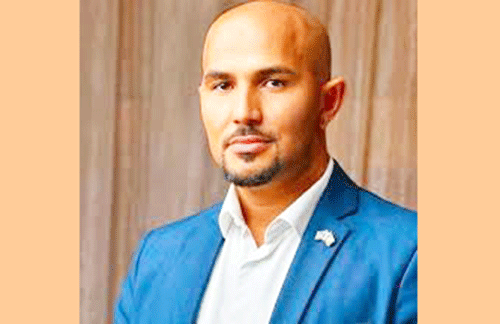Rudolf Gaiseb
Following the United States’ tariffs on Namibian products, Independent Patriots for Change (IPC) member of Parliament Rodney Cloete wants the two countries to return to the negotiation table for tariff exemption or reduction.
“The ministry should formally engage the US administration to negotiate tariff exemptions or reductions, in coordination with other African nations,” he said on Wednesday in Parliament.
US president Donald Trump announced a 21% tariff on Namibian exports, effective 9 April 2025.
He said the retaliatory measure, citing Namibia’s 42% tariff on American goods, threatens key export sectors: diamonds, uranium, fish, beef, lamb, grapes and blueberries.
Namibia exported approximately N$5.1 billion worth of goods to the US in 2024.
“A 10-20% drop in demand due to tariffs will undermine economic stability. This challenge is compounded by the fact that neighbouring countries face steeper tariffs – Lesotho (50%), Botswana (37%), South Africa (30%), and Angola (32%). The absence of a coordinated response threatens regional trade integrity,” Cloete said.
He noted the absence of explicit budgetary allocations for the implementation of the African Continental Free Trade Area (AfCFTA), a vital strategic alternative given its market of 1.3 billion people and GDP of US$3.4 trillion.
N$1.2 billion was allocated to the Ministry of International Relations and Trade in this year’s budget and N$3.8 billion over the MTEF, an increase from N$964.9 million in 2024/25.
With this representing slightly over 1% of the national budget, Cloete questioned whether this reflects the true strategic value of diplomacy and trade in Namibia’s national development.
“Namibia maintains diplomatic relations with approximately 150 countries but has resident missions in only 31. These consume nearly 80% of the ministry’s budget, primarily in foreign currencies. The IPC supports expanding our diplomatic presence only where it makes strategic or economic sense. Each mission should be evaluated on cost-benefit principles. Missions that do not pass this test should be reconsidered or consolidated,” the MP stressed.
The ministry of finance set the national budget at N$106.3 billion for the 2025/26 financial year.
He underlined that personnel expenditure alone is estimated at N$30-40 billion, representing approximately 32-43% of the budget, and combined with a debt servicing cost of N$13.7 billion, leaves limited fiscal space for developmental programmes.
“This situation creates a sobering narrative for the average Namibian household. It mirrors a family spending nearly half its income on salaries and loan repayments, with little left for investments in their future,” he said.
-rrgaiseb@gmail.com



